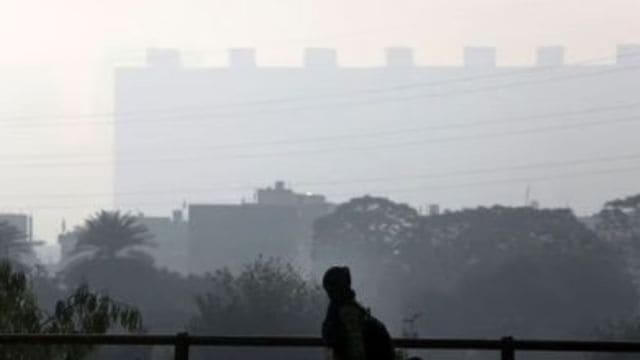Delhi air crisis: SC tells anti-pollution body CAQM to huddle with states to put in place plan on stubble burning
The bench, also comprising Justice Ujjal Bhuyan, said the solution suggested includes an action plan for crop diversification, an action plan for in-situ and ex-situ management of crop residue, and a mass awareness and consultation programme.
 The counsel, appearing for the state of Punjab, said that for crop verification to be successful, farmers have to be given a Minimum Support Price (MSP) and Minimum Assured Procurement that the Food Corporation of India will pick up all the produce
The counsel, appearing for the state of Punjab, said that for crop verification to be successful, farmers have to be given a Minimum Support Price (MSP) and Minimum Assured Procurement that the Food Corporation of India will pick up all the produceThe Supreme Court on Monday asked the Commission for Air Quality Management (CAQM) to hold a meeting with the states of Punjab, Haryana, and Uttar Pradesh to put in place a proposed action plan to tackle stubble burning by farmers which is contributing to air pollution in the Capital.
A two-judge SC bench, presided by Justices A S Oka, which has been monitoring the issue, referred to notes submitted by the court-appointed Amicus Curiae Senior Advocate Aprajita Singh and Additional Solicitor General Aishwarya Bhati (ASG) representing CAQM and the Department of Agriculture of the Central Government on Paddy Straw Management.
The bench, also comprising Justice Ujjal Bhuyan, said the solution suggested includes an action plan for crop diversification, an action plan for in-situ and ex-situ management of crop residue, and a mass awareness and consultation programme.
“We request the CAQM to call a meeting of the representatives of the states of Punjab, Haryana, and Uttar Pradesh. We direct that these states file responses for the above.’’
It further underlined that “considering the responses and after consulting the states, CAQM will come out with its views” on the issue and submit its suggestions to counsel appearing for the different parties by March 17.
The bench said it “will issue directions on the basis of the said note on March 28.” Punjab Advocate General Gurminder Singh referred to the air quality in Delhi which he said has been stagnant even as the state backs steps to wipe out stubble burning. Other factors within Delhi contributing to a stagnant AQI level since December should not be overlooked, he said.
“We have data on AQI of Delhi after 15th November which was the last day the fire incident was reported and thereafter the AQI in Delhi touched 400 and in January it is continuing….we are committed to eradicating stubble burning but how much are we contributing as State, if your lordships can just take a call on that,’ he submitted.
The counsel, appearing for the state of Punjab, said that for crop verification to be successful, farmers have to be given a Minimum Support Price (MSP) and Minimum Assured Procurement that the Food Corporation of India will pick up all the produce.







